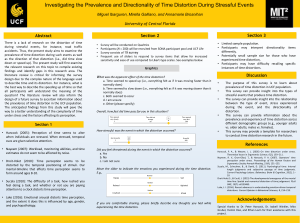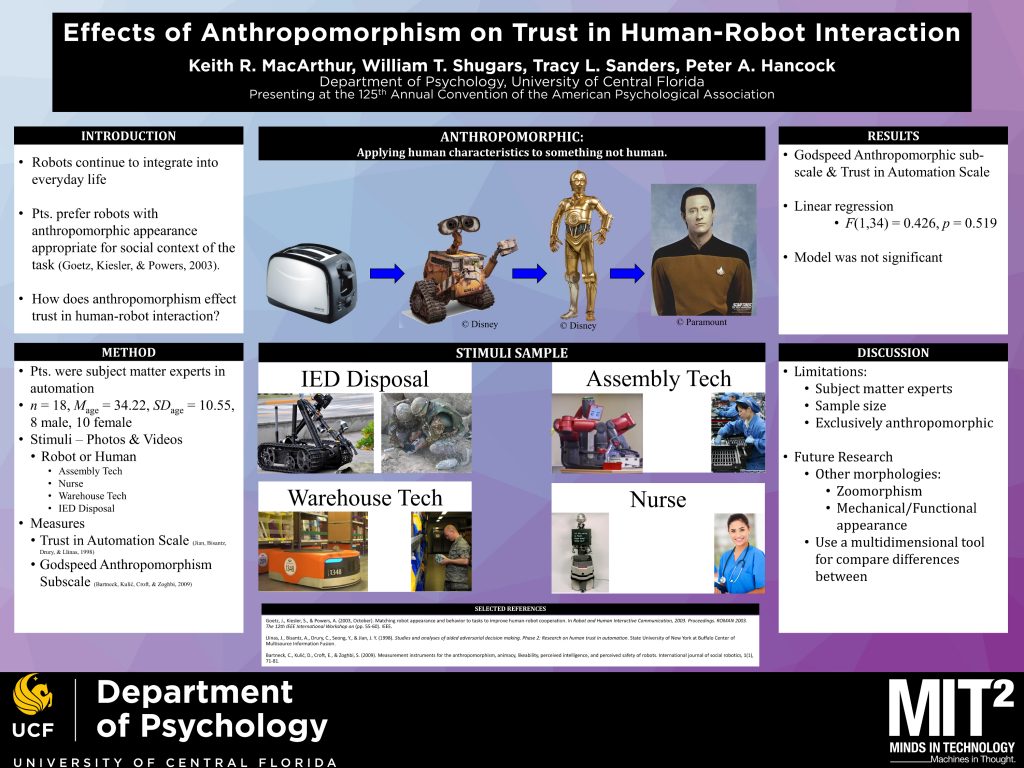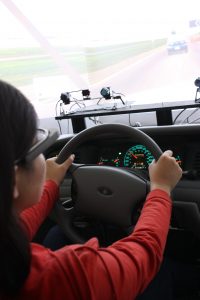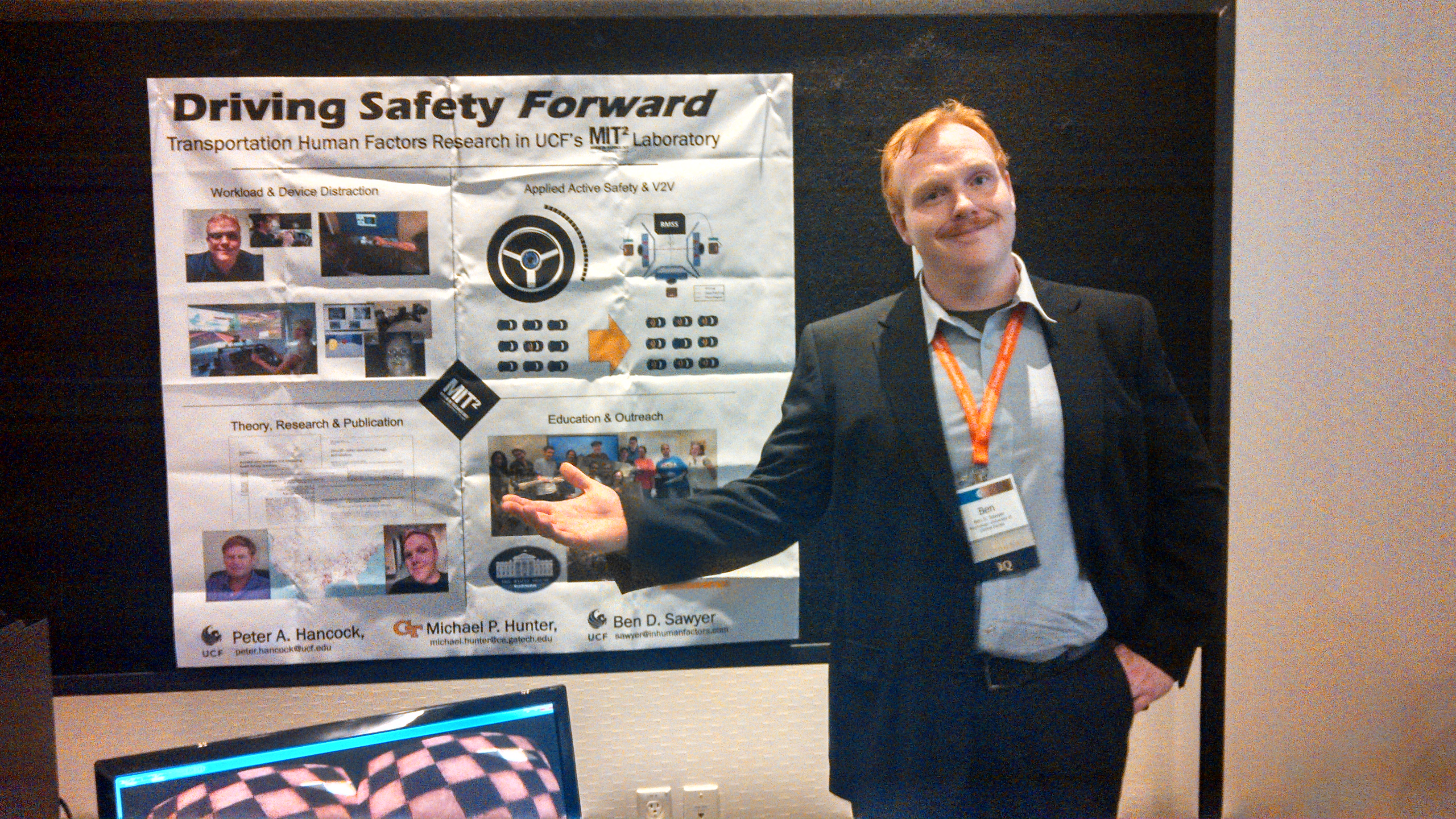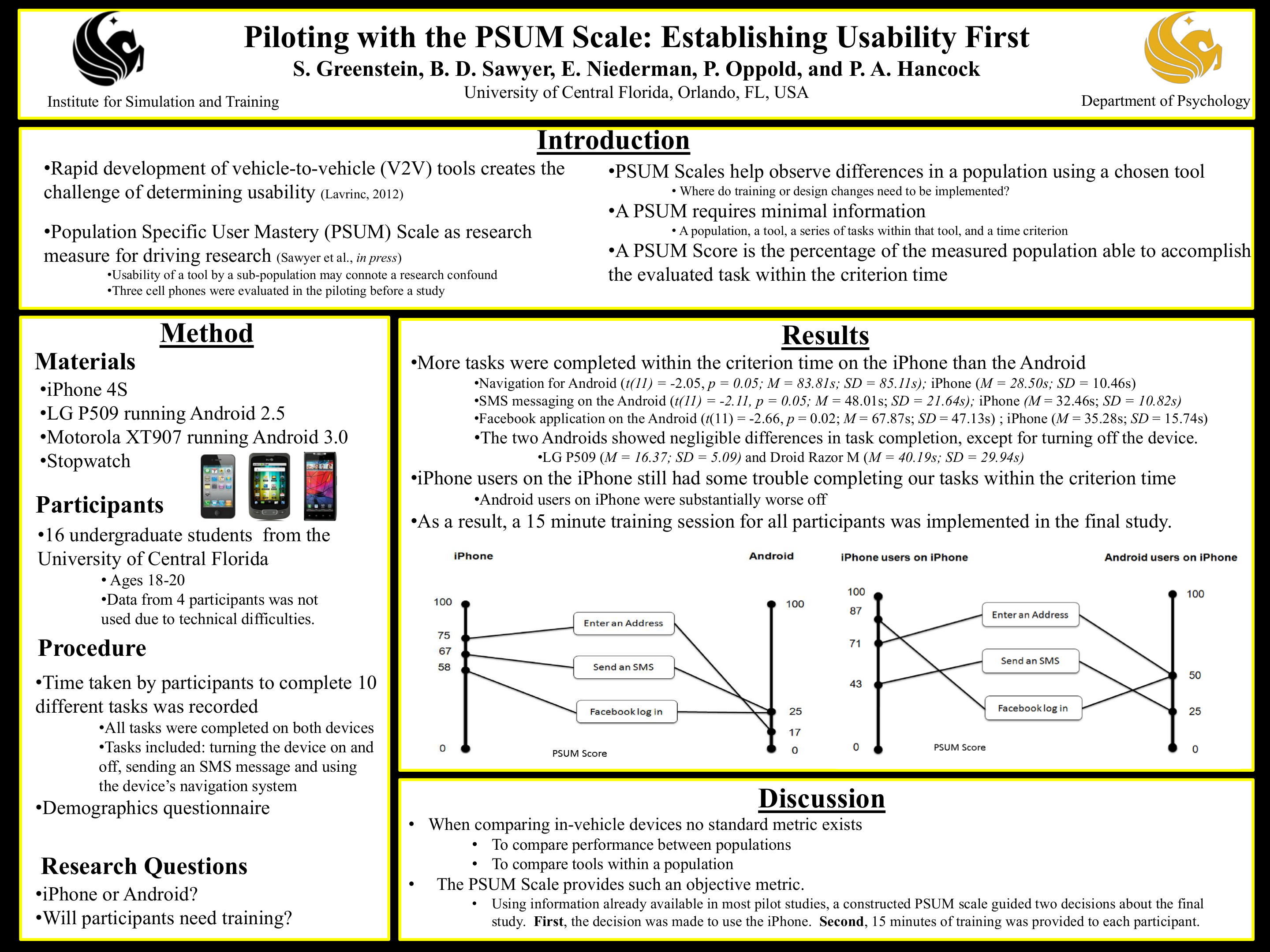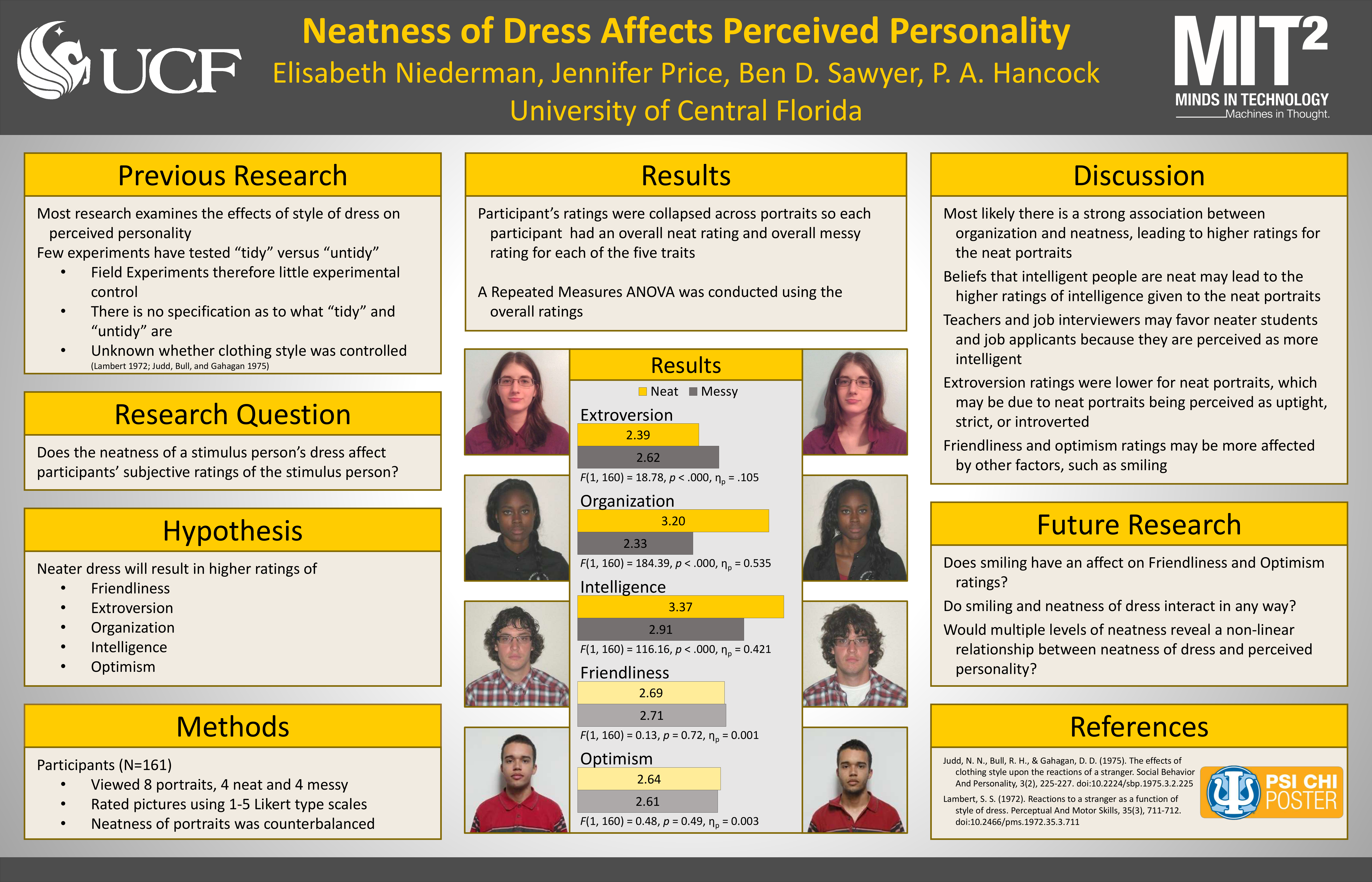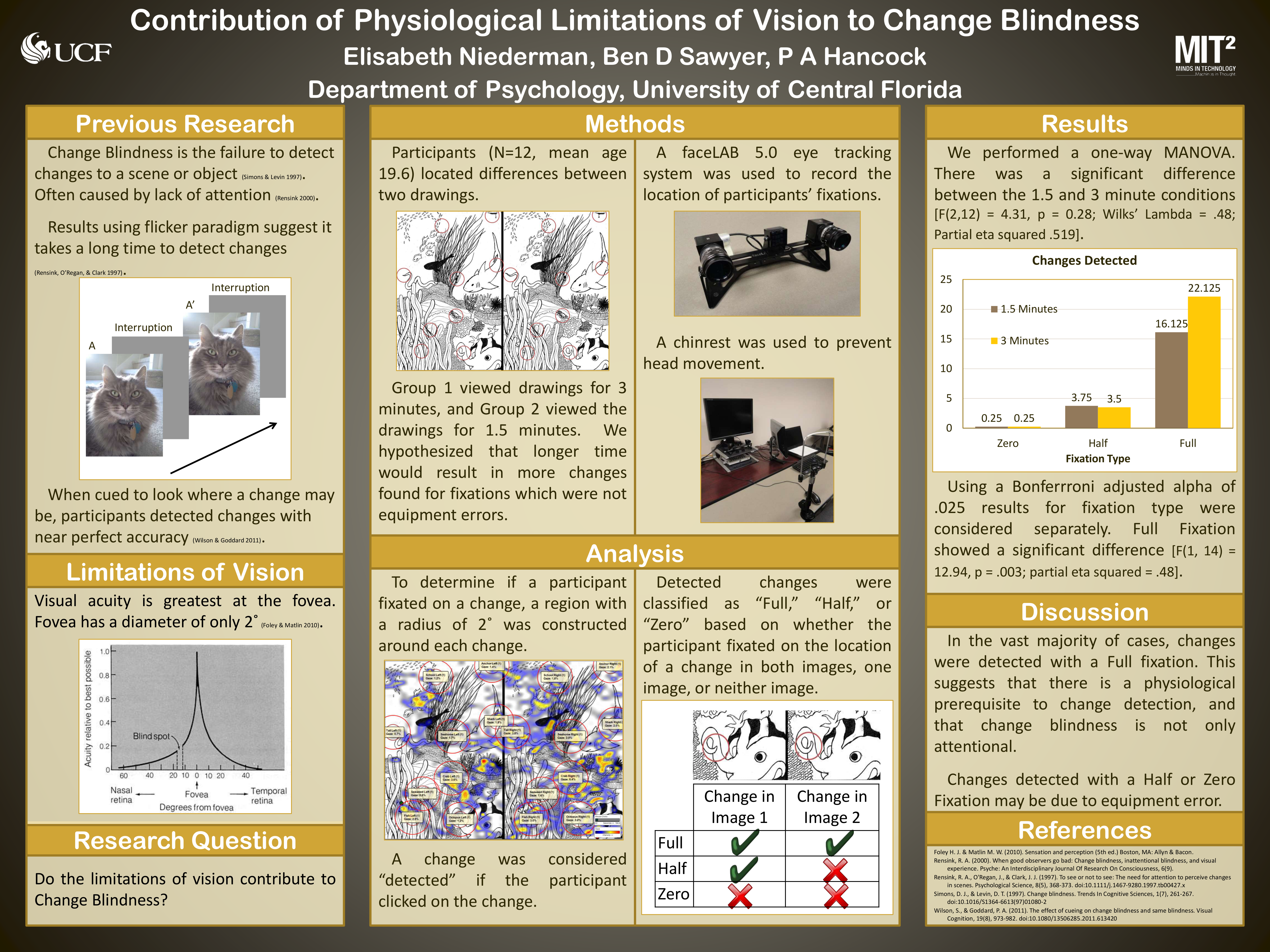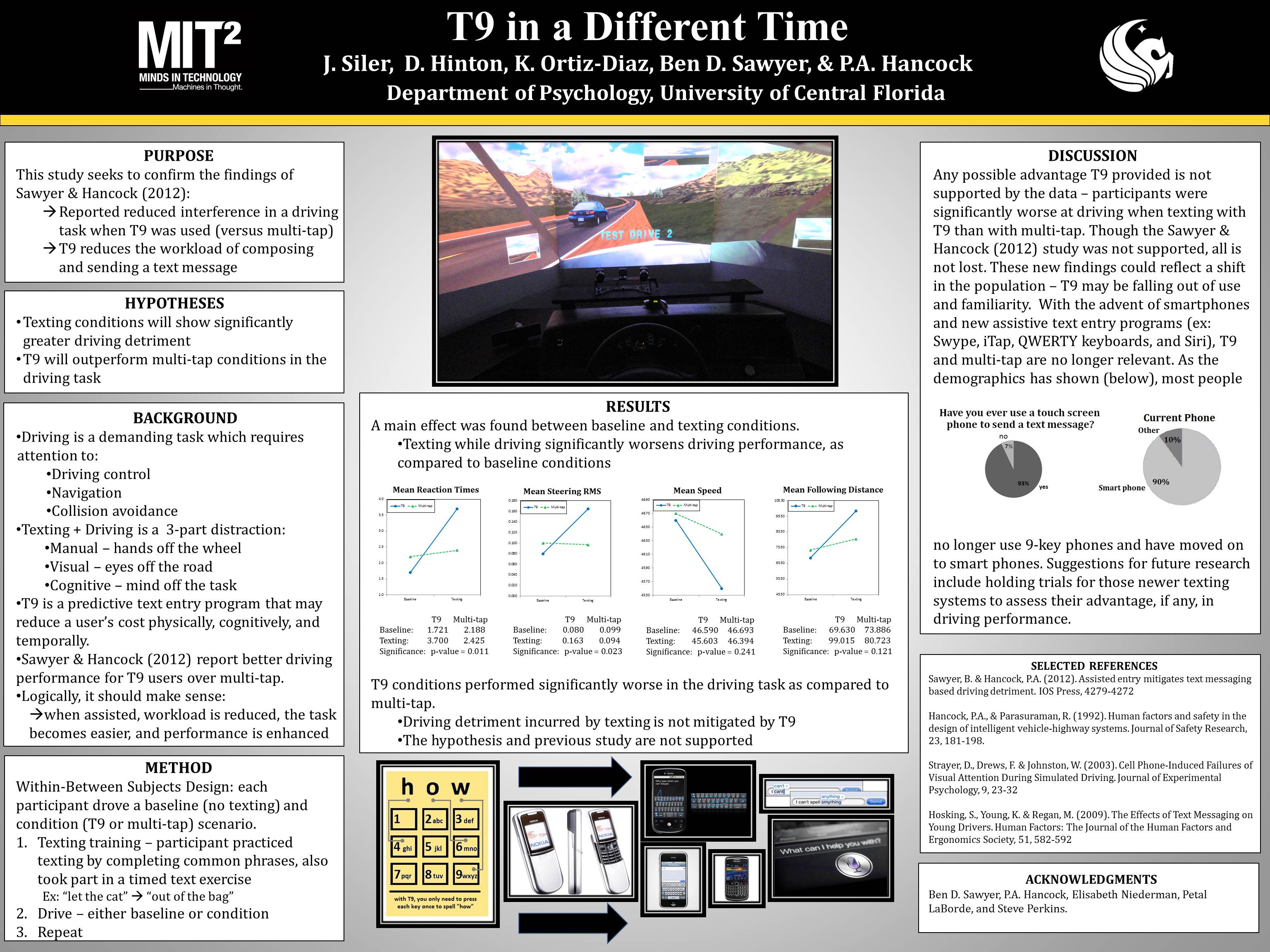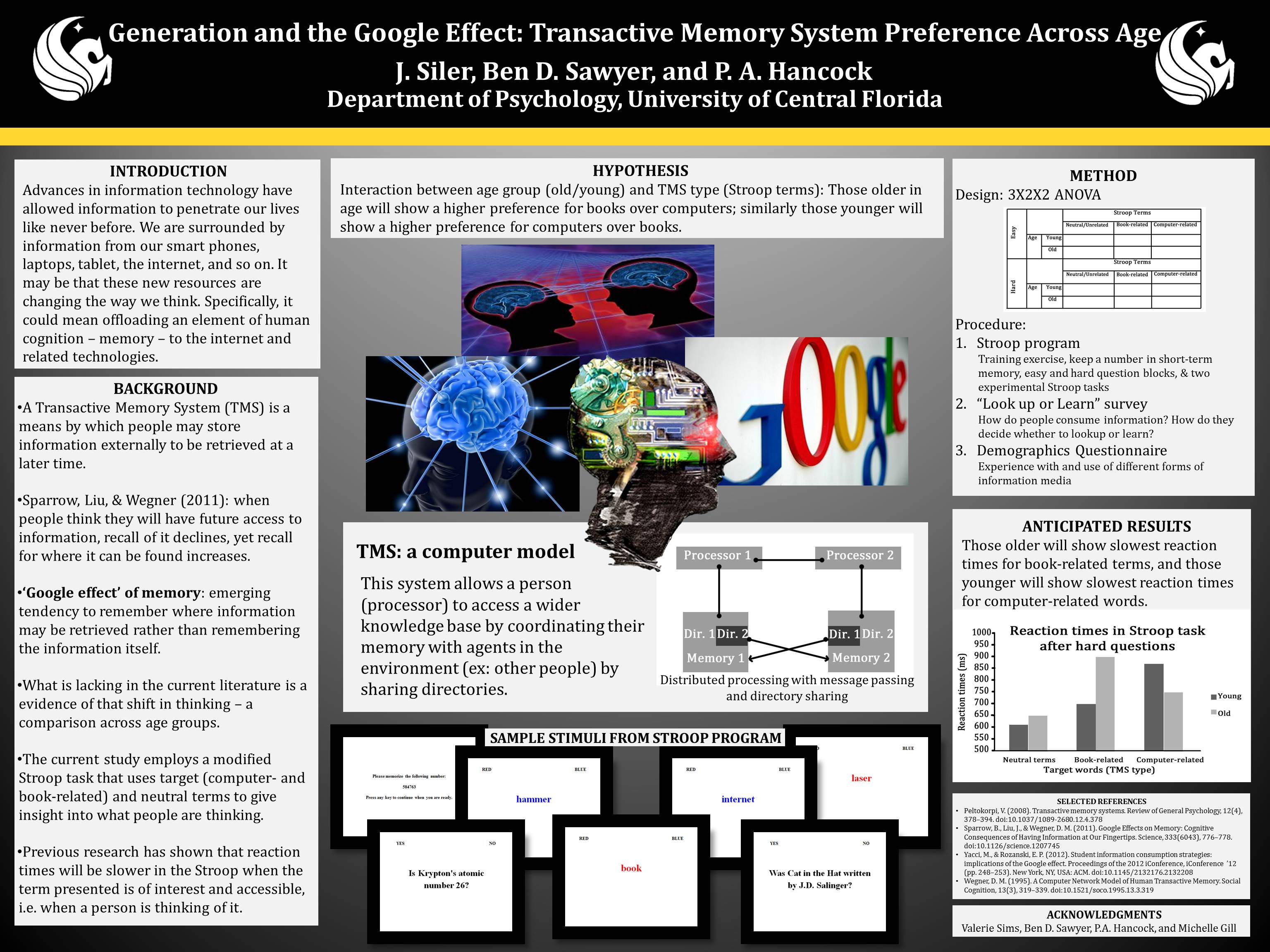The MIT2 Laboratory performs diverse Human Factors Psychology research under the guidance of Dr. Peter Hancock. We focus on the implications of human cognition, behavior, and physiology on man-made systems. The basic problem of how humans and their technology interact is examined in driving simulators, battlefield simulations, through robotic surrogates and virtual environments.
MIT2 brings together a highly interdisciplinary team, including Psychologists, Physiologists, Computer Scientists, Engineers, and Modeling & Simulation Professionals. Theoretical and methodological advances, together with empirical investigation, have allowed our researchers to make celebrated and groundbreaking achievements. Every day, Human Factors research brings us closer to understanding stress, vigilance, cognitive decision making, time perception, and many other underpinnings of the fascinating and complicated relationships between humans and their tools.

